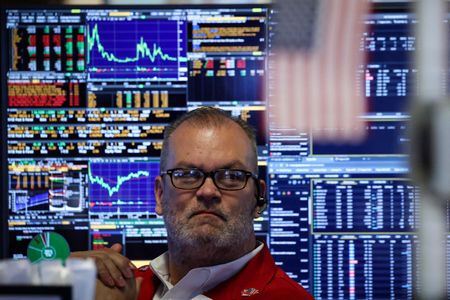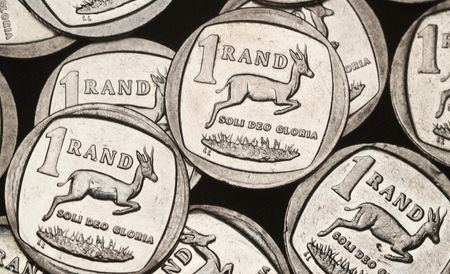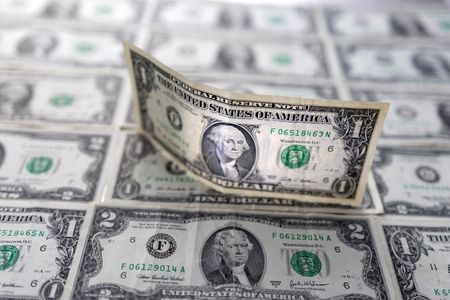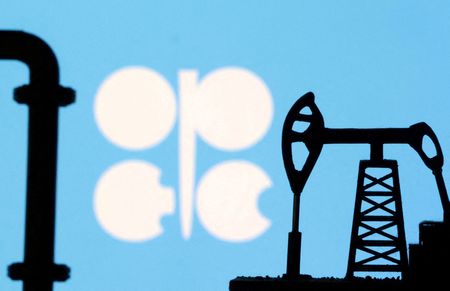By Shariq Khan
NEW YORK (Reuters) -Oil prices rose on Wednesday after data showed U.S. crude and fuel inventories drew down more than expected last week, and as U.S. President Donald Trump’s optimistic tone over upcoming talks with his Chinese counterpart helped ease economic jitters.
Brent crude futures were up 53 cents, or 0.8%, to $64.93 a barrel by 1:19 p.m. ET (1719 GMT), while U.S. West Texas Intermediate crude futures gained 40 cents, or 0.7%, to $60.55.
U.S. crude oil, gasoline and distillate fuel stockpiles each fell more last week than analysts had expected, data from the U.S. Energy Information Administration showed on Wednesday. Crude oil stocks fell by nearly 7 million barrels, versus expectations of a meager 211,000-barrel drop, the data showed. [EIA/S]
The big decline forced a reassessment of expectations that the oil market is headed for a large surplus, with the OPEC+ group raising output and U.S. production at record levels.
“Where’s the glut?” Price Futures Group analyst Phil Flynn said after the report. “The longer the glut doesn’t hit, the more we will question whether it exists,” he said.
Trump predicted a good outcome from his talks with Chinese President Xi Jinping, which are scheduled to take place on Thursday at a summit in South Korea.
Also at that summit, the United States and South Korea finalized details of a fraught trade deal.
The optimistic note about U.S.-China talks and the deal with South Korea could help alleviate some concerns of a slump in economic activity from Trump’s tariffs and trade wars, which have raised concerns around oil demand and weighed on commodity prices in recent months.
Brent and WTI last week registered their biggest weekly gains since June after Trump imposed Ukraine-related sanctions on Russia for the first time in his second term, targeting major oil companies Lukoil and Rosneft.
Still, doubts that sanctions would offset oversupply and talk of another OPEC+ output increase pressured prices; both benchmarks fell 1.9%, or more than $1, in the previous session.
OPEC+, the world’s largest group of oil-producing nations, is leaning towards a modest output boost in December, four sources familiar with the talks said, with two sources citing an additional 137,000 bpd.
(Reporting by Shariq Khan and Ahmad Ghaddar, additional reporting by Sam LiEditing by Alexander Smith and Nia Williams)










